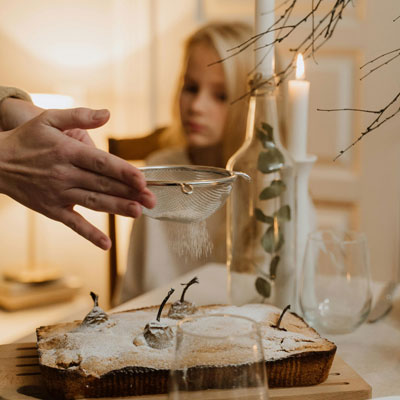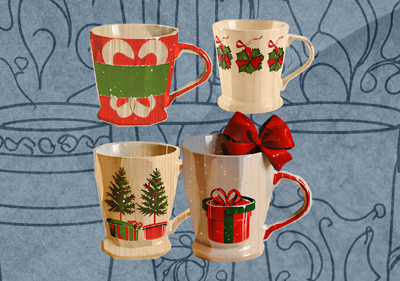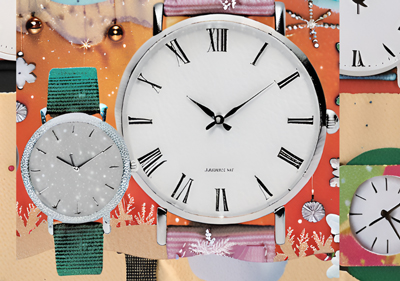The Secret to Giving Great Gifts: Paying Attention
In this article I discuss how paying attention to your recipient and their needs is important for your relationship and how it can help you pick better gifts.
Contents
- 1. Why Paying Attention Makes a Difference
- 2. How to Pick Better Gifts
- 3. Observe and Listen
- 4. Understand Their Preferences
- 5. Needs and Desires
- 6. Meaningful Presentation
- 7. Conclusion
In our fast-paced, distraction-filled world, one of the most meaningful things we can do for others is to truly pay attention to them. When we take the time to listen, observe, and understand someone, it can create a powerful emotional connection. Paying attention makes people feel seen, valued, and understood. These feelings go far beyond just hearing words or noticing actions. This also applies to gift giving. Picking a suitable gift requires that you know your recipient’s preferences and that requires paying attention to them.
Gift-giving is a tradition that has existed for centuries, with each culture and person adding their own spin to it. Whether it’s a birthday, an anniversary, or just a small gesture of thanks, gifts are a way of expressing feelings, creating memories, and showing that we care. I remember giving my best friend a simple hand-painted mug for her birthday one year. It wasn’t the fanciest gift, nor the most expensive, but the look of joy on her face when she saw it spoke volumes. She loved it because it was something that spoke to her love for quirky, handmade items.
Research
Research suggests that close relationships, like those between romantic partners, people often share personal information with each other. When one person shares something, the other usually responds. The person who shared then judges if the response shows that their partner understands, supports, and cares about them. This is called perceived responsiveness. It’s an important part of building and keeping intimacy in relationships. Perceived responsiveness is key in different interactions, like offering support or showing appreciation. To be a responsive partner, it’s important to listen carefully and show that you understand and care about what the other person is saying.1
The best gifts aren’t always the ones with the highest price tags. In fact, they’re the ones that show a real understanding of the recipient. Their quirks, their passions, and their needs. A gift that reflects the thought and attention you’ve given the recipient will always stand out more than something generic or bought without much thought.
Studies have shown that the more attention we pay to someone’s personality and preferences, the more meaningful our gifts become. It’s about finding something that resonates with the person, not just picking out the latest trending item. That’s the secret to giving a gift that will be cherished and remembered.
Why Paying Attention Makes a Difference
 Impress with thoughtfulness.
Impress with thoughtfulness. When you pay attention to someone, you’re showing them that they matter. In a society where it’s easy to feel overlooked or unheard, the simple act of giving someone your full attention can make a world of difference. Research has shown that people feel a deep sense of appreciation when others acknowledge their needs, thoughts, and feelings. It’s a silent message that says, You are important to me, and this can strengthen relationships, whether in friendships, family dynamics, or romantic connections.
The act of giving a gift goes beyond just exchanging an object. It’s a way to convey emotions, build connections, and even communicate unspoken messages. The psychology behind gift-giving is clear: when a gift feels personal and thoughtful, it strengthens the bond between the giver and the recipient. The emotional impact of a gift is much stronger when the giver has taken time to tailor the gift to the recipient’s unique preferences. The recipient feels appreciated, seen, and understood, which in turn fosters greater emotional closeness.
How to Pick Better Gifts by Paying Attention
Following are the steps you can take to pick better gifts for your beloved recipients. And while not every gift you give has to require effort, if you follow these steps every time you pick a gift for your favorite recipients, you’ll get into a habit of intuitively doing these and it will become effortless.
Step 1: Observe and Listen
 People will tell you what they want.
People will tell you what they want. Paying attention is important in building strong relationships. When people feel that their thoughts and feelings are being actively listened to, they feel safe and understood. This sense of emotional intimacy is vital for building strong, lasting relationships. Studies have shown that attentive listening—where someone is fully present, making eye contact and engaging with what’s being said—creates a feeling of being emotionally supported, which fosters greater closeness and trust.
The first step in paying attention is to observe and listen carefully. Often, the most thoughtful gifts stem from small, seemingly insignificant details mentioned in passing. Maybe the recipient has complained about a particular item breaking, or perhaps they’ve mentioned a new interest or hobby. These little comments are goldmines for gift-giving, as they can provide insight into their desires, preferences, and unmet needs.
Hobbies:
Notice what they do in their free time. What are their favorite hobbies and activities? For example, if they frequently talk about trying new cuisines. A gift card to a unique local restaurant or a cooking class could be exciting or an interesting cookbook. If they are a history buff, a history themed board game or puzzles they haven’t played will make their day.
Conversations:
Listen for mentions of things they enjoy or desire. People often give us hints during conversation on what they want. If you pay attention to them you’ll learn to pick up on these. For example, a girl might mention and describe a beautiful item, let’s say a pair of shoes, they saw at the mall but didn’t get it. You could find out more about it and surprise them with it or a similar item.
Success and Misses:
Reflect on what gifts they’ve appreciated in the past. Was there a gift you gave them that they couldn’t stop talking about? What was about it that they loved and vice versa.
Tip
People often leave hints about what they would like. People often express subtle desires for gifts, which, when acknowledged, show the giver’s attentiveness. For example, if someone mentions how much they miss reading for fun, you can give them a Kindle or an audiobook subscription. While they might not buy these for themselves, your gift will be appreciated. By paying attention to these hints, you’re showing that you care enough to know what would make their life easier or more enjoyable.
Step 2: Understand Their Preferences and Personality
 How well do you know your recipient?
How well do you know your recipient? Once you’ve gathered information from your observations and conversations, the next step is to consider the recipient’s personality and preferences. Does the person enjoy practical, useful items, or are they more sentimental and moved by emotional gestures? People prefer gifts that align with their personalities and lifestyles. For example, a minimalist might appreciate a simple, high-quality item, like a beautifully designed leather wallet, while someone who loves sentimental gestures might cherish a personalized keepsake.
It’s also important to recognize how people express and receive affection. Different people show and receive love in different ways—through words of affirmation, acts of service, receiving gifts, quality time, or physical touch. Understanding the recipient’s primary love language can help you choose a gift that speaks directly to their heart. If their primary love language is “acts of service,” they might appreciate something that makes their life easier, like a home-cooked meal or a well-organized planner.
If their love language is “receiving gifts,” a tangible, thoughtful gift might have the greatest emotional impact.
Step 3: Choose Gifts That Align with Their Needs and Desires
 Give them what they desire.
Give them what they desire. A great gift doesn’t just show that you’ve paid attention—it should also address the recipient’s needs or desires. Psychological studies emphasize that people are drawn to gifts that solve a problem or fulfill a need, rather than those that are simply decorative.
For example, a high-quality backpack for someone who commutes daily or a book on a topic they’ve been wanting to learn more about demonstrates that you’ve taken their needs into account.
Research
Research suggests that givers and receivers view gifts differently: givers think about gifts in a more abstract way and focus more on how desirable the gift is, while receivers care more about how practical it is. Studies show that givers don’t always pick gifts that make receivers happiest, even though they believe they are. The article also finds that givers are aware of their emotional distance from the receiver, but receivers don’t feel this distance as strongly. 2
While practical gifts aren’t suitable for every recipient or occasion, gifting something that aligns with their current life circumstances can also show that you’re thoughtful. For instance, a person going through a stressful period might appreciate a gift of relaxation, maybe a self-care kit or a subscription to a mindfulness app. On the other hand, if they’re starting a new chapter in life, such as moving to a new home or starting a new job, gifts that help them settle into this transition like a cozy blanket, a desk lamp, or an elegant mug can make a world of difference.
Step 4: Be Thoughtful in Your Presentation
 Make it look neat.
Make it look neat. The thoughtfulness of a gift isn’t just in its content—it’s in how it’s presented. The way a gift is presented influences the recipient’s emotional response.
A beautifully wrapped gift or a personal touch, such as a handwritten note, enhances the perceived value of the gesture. It signals to the recipient that the giver has put in extra effort to make the experience special, and that they care about how the gift is received.
Research
Research suggests that when a gift from a friend is wrapped neatly, recipients expect more, and if the gift doesn’t meet these high expectations, they like it less. On the other hand, if the wrapping is sloppy, expectations are lower, so they may like the gift more. For gifts from acquaintances, the neatness of the wrapping signals how close the relationship is. A neatly wrapped gift from an acquaintance makes the recipient think more positively about the gift. 3
For example, a gift might be wrapped in their favorite color or have a decorative touch that reflects their personality—like a bow made from a fabric they love or a card that features an inside joke. A small, thoughtful presentation can elevate the gift, making the moment feel more intimate and personalized.
Conclusion
The key to giving great gifts is simply paying attention. When you take the time to notice what someone needs, wants, or loves, you’re not just giving a gift, you’re saying, “I see you, and I care.” Thoughtful gifts build stronger connections and bring more joy.
It all comes down to empathy and really understanding and sharing someone’s feelings. When you’re genuinely interested in what someone says and feels, they don’t have to explain themselves. Feeling heard and understood makes people feel valued and boosts their self-worth.
Choosing a gift that matches someone’s true desires, and presenting it thoughtfully, can make any occasion special. Great gifts aren’t about the price or the size of the gesture, instead they’re about the thought and care you put into finding something that truly resonates. That’s what makes a gift memorable.
Frequently Asked Questions
Does presentation of a gift matter?
Yes. When it comes to close acquaintances, a neatly wrapped gift shows that you put effort and value them. Don’t overdo it though. It raises expectations and might backfire. Read More
Should you give practical gifts?
It depends on the recipient. If you have a close relationship with the recipient give something that is meaningful but if they’re casual acquaintances give them something they can use. Read More
How to find out what the recipient wants as a gift?
Pay attention to the subtle hints they give you about what they want. Also, you can pick a gift based on their interests or needs. Read More
Article Sources
1. Arican-Dinc, B. and Gable, S.L., 2023. Responsiveness in romantic partners’ interactions.Current Opinion in Psychology, p.101652.
2. Ernest Baskin, Cheryl J. Wakslak, Yaacov Trope, Nathan Novemsky, Why Feasibility Matters More to Gift Receivers than to Givers: A Construal-Level Approach to Gift Giving, Journal of Consumer Research, Volume 41, Issue 1, 1 June 2014, Pages 169–182,
3. Rixom, J. M., Mas, E. M., & Rixom, B. A. (2020). Presentation matters: the effect of wrapping neatness on gift attitudes. Journal of Consumer Psychology, 30(2), 329-338.

Dattaraj Pai
I’m the founder of Science of Gifts, a website dedicated to helping people find meaningful and thoughtful gifts. With years of experience researching the psychology of gift-giving, I explore how gifts communicate emotions, strengthen relationships, and create lasting memories.
Beyond writing about gifts, I have a background in storytelling and filmmaking, which fuels my passion for exploring the cultural impact of meaningful gestures.














